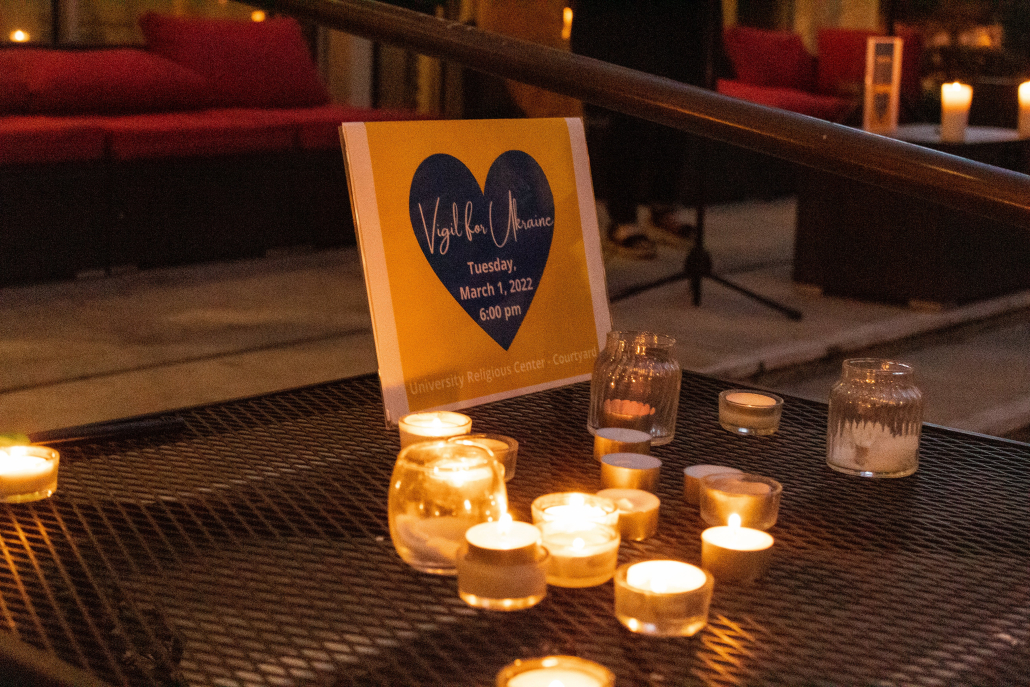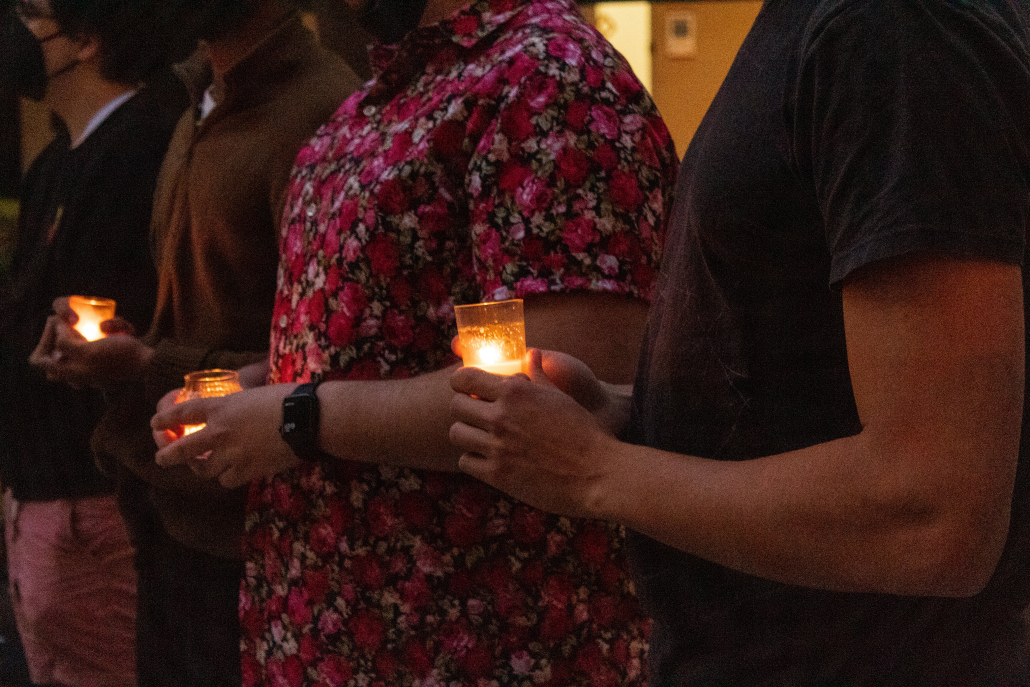Students hold vigil in support of Ukraine

Around 20 students, faculty and staff gathered for a vigil Tuesday in solidarity with Ukraine, holding candles, giving speeches, delivering prayers and leading meditations. The Department of Slavic Languages and Literatures hosted the event at the University Religious Center courtyard.
Russia’s President Vladimir Putin launched an invasion against Ukraine last Thursday after months of military buildup on the Ukrainian border. At the time of publication, around 660,000 Ukrainians fled the country in the last week as missiles targeted major cities, according to United Nations Refugee Agency. The Russian army inflicted casualties in the hundreds, and Putin has put the Russian nuclear force on alert.
President Carol Folt spoke first, emphasizing the need for a “more peaceful resolution.”
“There are millions and millions of people around the world, just horrified by what we’re seeing,” Folt said. “I know that we all are sharing connection: inter-faith connection, inter-community connection, inter-country connection. This is such a human moment.”

The Organization for Students of Slavic and East European Studies at USC, members of whom were present at the vigil, wrote in a statement that it was “stunned at the unprovoked and tyrannical entry of Russian forces into Ukraine,” and that the “Ukrainian people have every right to defend themselves and their land.”
“Does the constant potential of violence remain the only way to keep further violence at bay?” the statement read. “If so, let it remain at potential. We ask for diplomacy and open communication between nations and, first and foremost, an end to violence and bloodshed.”
Valerie Katritch, a freshman majoring in environmental science and health, spoke next about her Russian, Ukrainian and Jewish identities and the questions she received about how she felt “about the current situation.”
“Why should my identity affect my opinion on the conflict between Russia and Ukraine?” Katritch said. “Whose side I’m on does not matter. I am against war.”

Katritch then read text messages a Russian soldier had sent to his mother before his death, which were initially relayed by Sergiy Kyslytsya, Ukraine’s ambassador to the United Nations.
“Mama, I’m in Ukraine,” the messages read. “There is a real war raging here. I’m afraid. We are bombing all of the cities together, even targeting civilians. We were told that they would welcome us. And they are falling under our armored vehicles, throwing themselves onto the wheels and not allowing us to pass.”
Katritch said she, too, was afraid of “what our world has become.”
“We often want to put one side as the bad guy and one as the good guy; it’s simpler that way,” Katritch said. “But, in reality, there is one common enemy we’re against here: the Putin administration and the notion of war in general.”

Following Katritch, students and faculty led a series of prayers. Simardeep Gawra, a junior majoring in computational neuroscience and biomedical engineering, recited the Ardas, a set prayer in Sikhism.
The closing speaker said the war in Ukraine was an “assault against democracy,” and called on attendees to “have the courage of the Ukrainian people to stand up for democracy in this society.”
“The only threat that Ukraine poses to Vladimir Putin is the example of the Ukrainian people embracing democracy,” another speaker said. “A threat to democracy anywhere is a threat to democracy everywhere.”
The vigil ended as attendees stood gathered in a circle and shared a silent moment of reflection.

